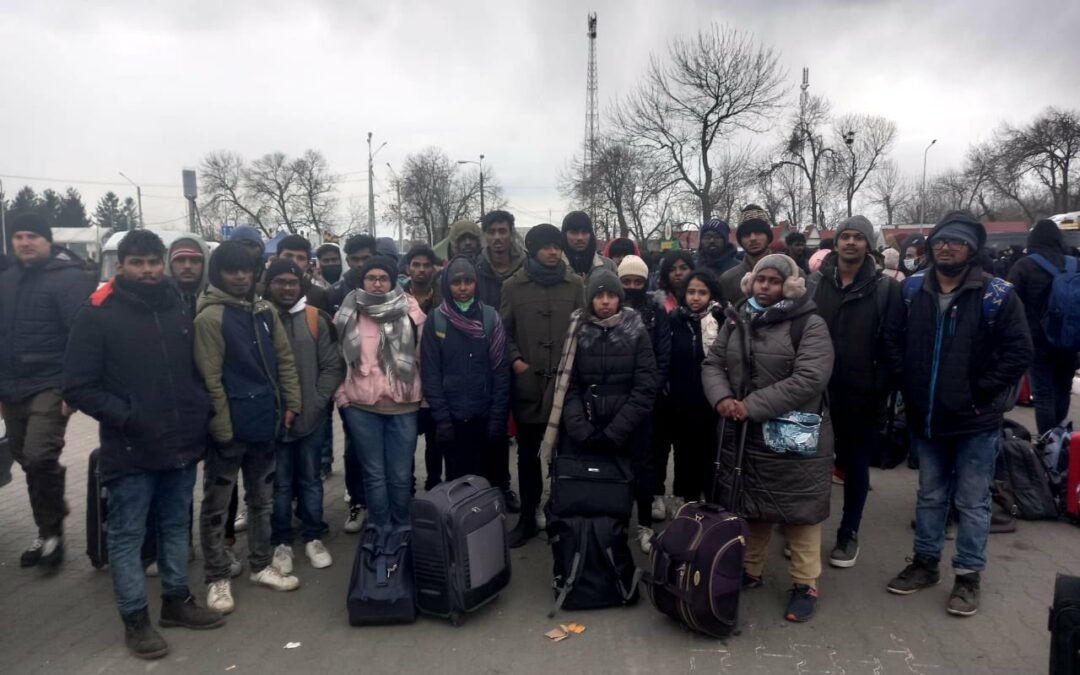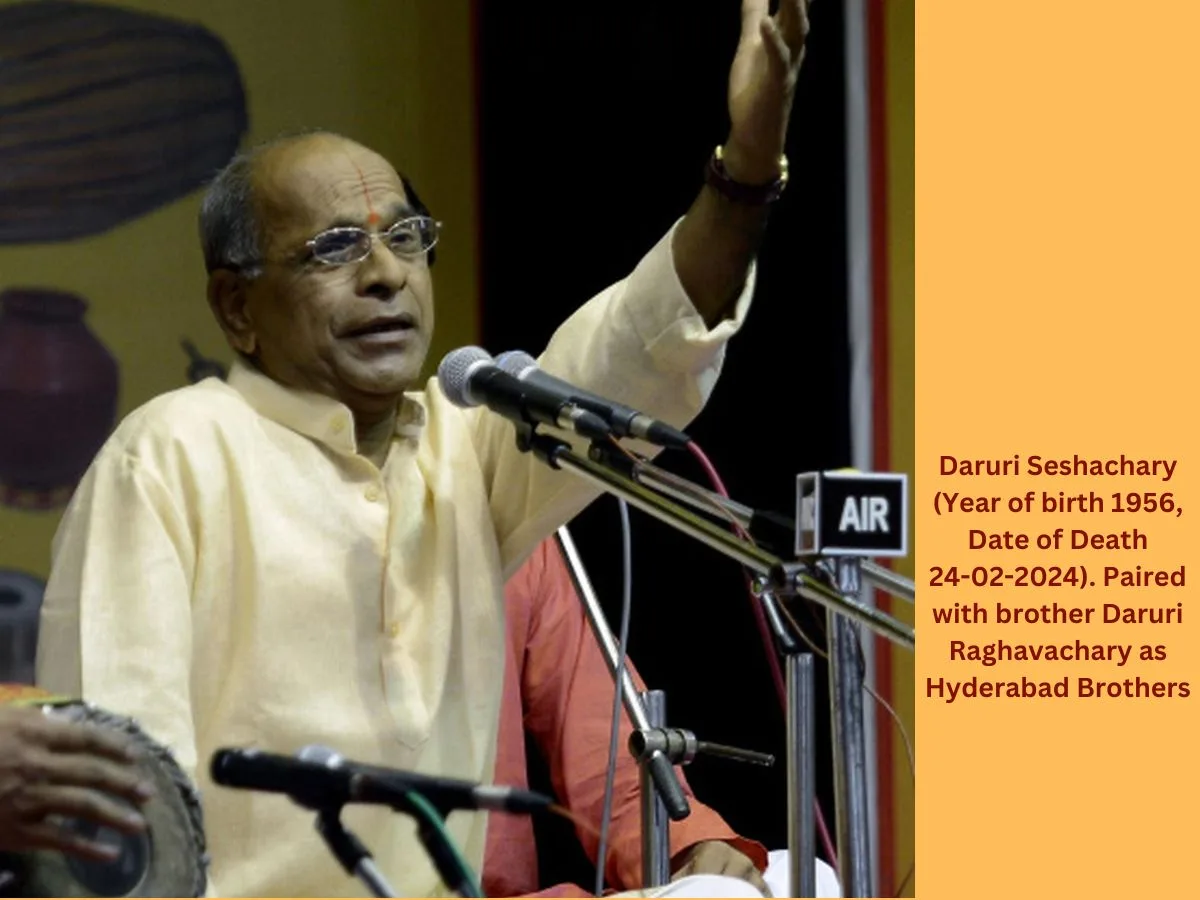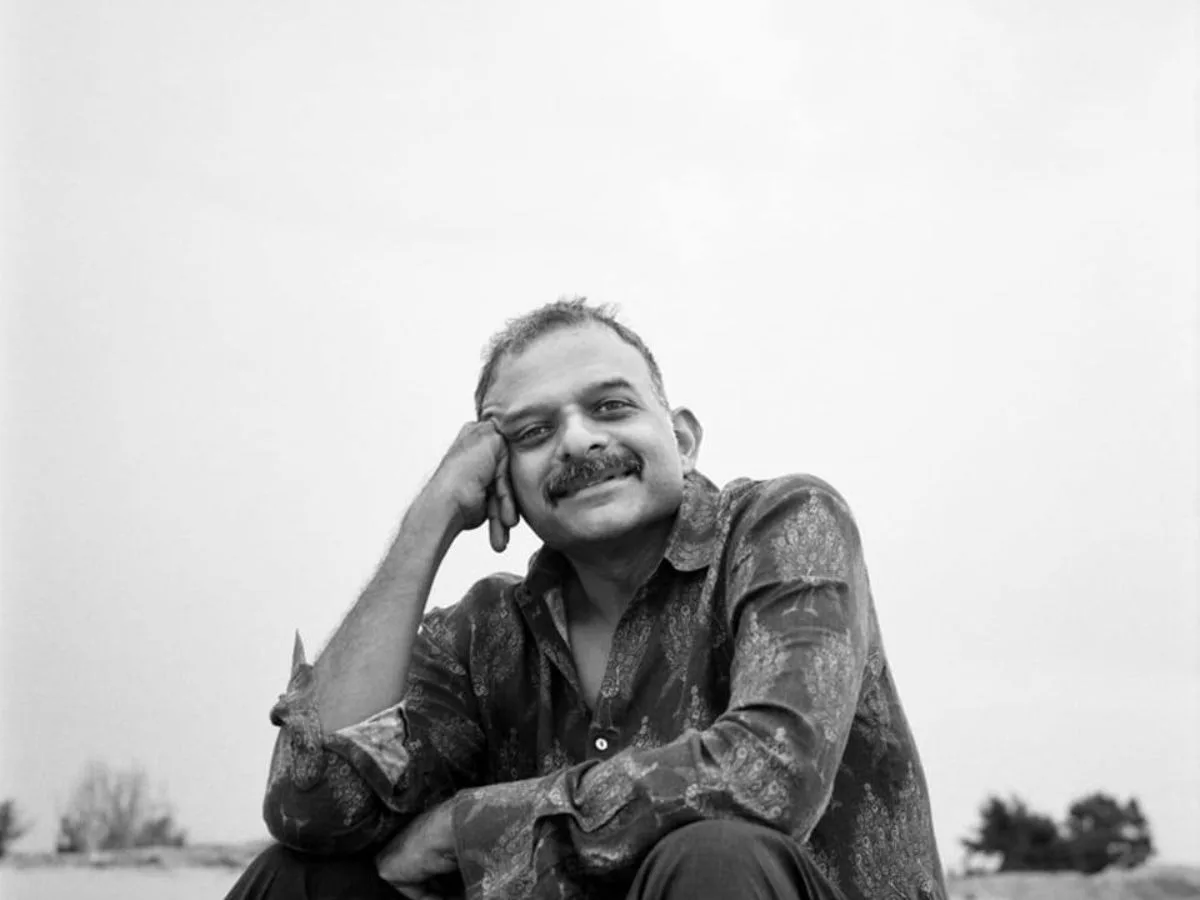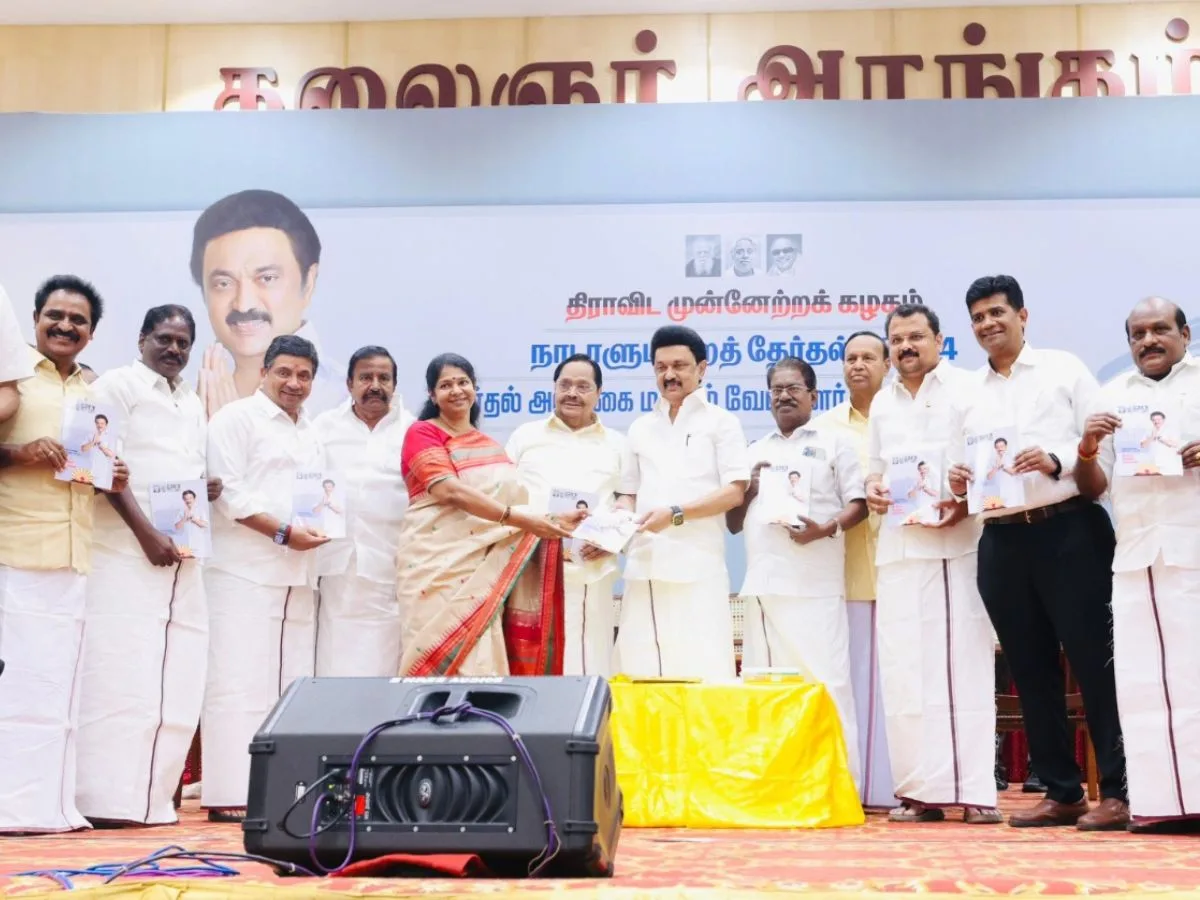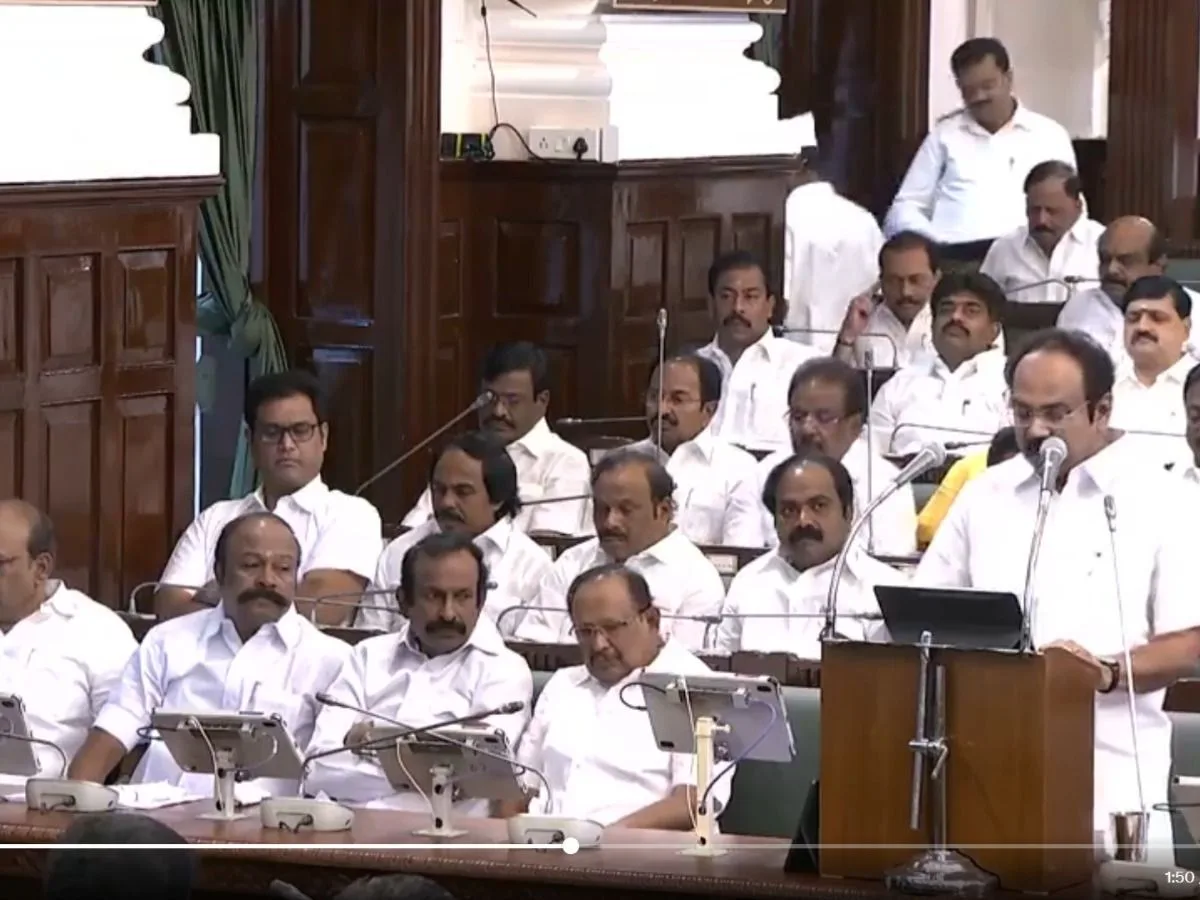Read in : தமிழ்
Operation Ganga has started with four ministers arriving in countries neighbouring Ukraine to rescue and bring back home some 20,000 Indian students including around 5,000 Tamils.
Many of the Tamils in Ukraine are students drawn to the relatively cheaper medical education there compared to what private medical colleges demand in the state.
While the minister for civil aviation Jyotiraditya has been sent because of his portfolio and the need to marshal planes for this massive repatriation, others have specific skillsets. Kiren Rijiju is a fast thinking and acting minister who distinguished himself when he was in the Home Ministry. VK Singh is the champion of the repatriation of nurses from Iraq after the ISIS takeover. Hardeep Singh Puri has UN experience including as president of the Security Council. He can take care of the diplomacy and visa issues and so on.
These four ministers have the mandate to bring our boys and girls back home safely. But will they be able to do it?
It does seem that the crisis has been overwhelming for the Indian embassy in Ukraine. Beyond setting up a call center and issuing advisories, they have been able to do very little.
Operation Ganga’s success or its failure will be a direct reflection on the Narendra Modi style of governance, priorities and choices it has made over more than seven years. Geopolitical realities and compulsions are there that are beyond India’s control. But there is much that India can do to secure our nationals stuck there.
The present government is never averse to leveraging any opportunity for the sake of politics however cynical that may sound. It’s the way the regime works. The name Ganga itself has direct UP connotations. Any early success will be celebrated and videos of repatriates chanting Modi’s name and Bharat Mata Ki Jai will be circulated widely by the propaganda machine. A mini Balakot will not harm the BJP’s flagging prospects in UP. The fear is what will happen after the elections. Photo-ops, selfies and WhatsApp videos will not serve any immediate political purpose after the poll ends March 7.
VK Singh’s role will be crucial. We have to understand how embassies and foreign services operate to appreciate it. While the ambassador and high commissioner is the head of the embassy, he or she usually has a first, second and third secretary to assist him. These are typically IFS officers and command a team of support staff.
Then there is the Defense Attaché (DA). He is the networking man, the PR person and the military-cum-intelligence man. He is the one who is out on the streets of foreign countries, meeting people, attending events, throwing parties or attending them. He is well networked with DAs of other countries, builds contacts in the militaries of the host country.
During the ISIS operation, VK Singh was able to leverage contacts in the Saddam Hussein military developed over many decades by Indian DAs in Iraq. A large part of the Sunni Saddam Hussein army and its commanders had crossed over to the ISIS and past Indian acquaintances were reached out to.
India has excellent relations with Poland. But that cannot be said about other neighbouring countries such as Hungary, Romania and Slovakia where students could possibly go. Most students are stranded at Kharkiev, near the border with Russia. While India has good relations with Russia, asking students to leave via the aggressor nation may not be easy. There are reports the students feel for the Ukranian cause seeing their friends and their families.
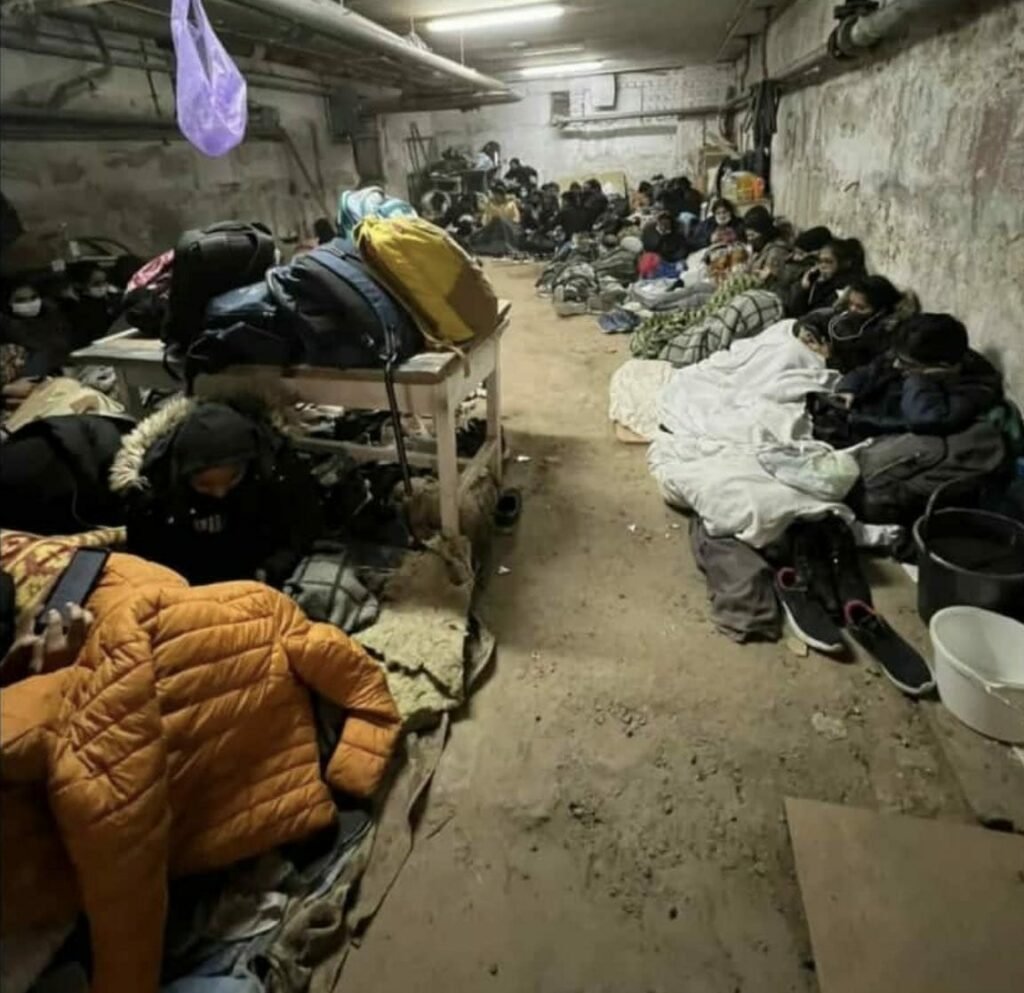
Indian students at a bunker in Kharkiv, a city in Ukraine which Russian soldiers invaded. (Photo: Twitter @PeaceBrw)
In the case of Ukraine, what may help India is historic ties as well as a recent parts and service supply agreement worth close to $1 billion India signed with Ukraine for Russian-made equipment in the Indian military. While the two nations are at war now, they have an intertwined economic, even defense relationship established during the Soviet days. VK Singh will be scouting for Indian networks in Ukraine as well as Russian military.
It does seem that the crisis has been overwhelming for the Indian embassy in Ukraine. Beyond setting up a call center and issuing advisories, they have been able to do very little. Tamils have reported sleeping in bunkers and basements without heating in the bitter cold in Ukraine. Students have said they have received no help or assistance and have been left to fend for themselves. Locals and Ukrainian authorities have been sympathetic, they have said.
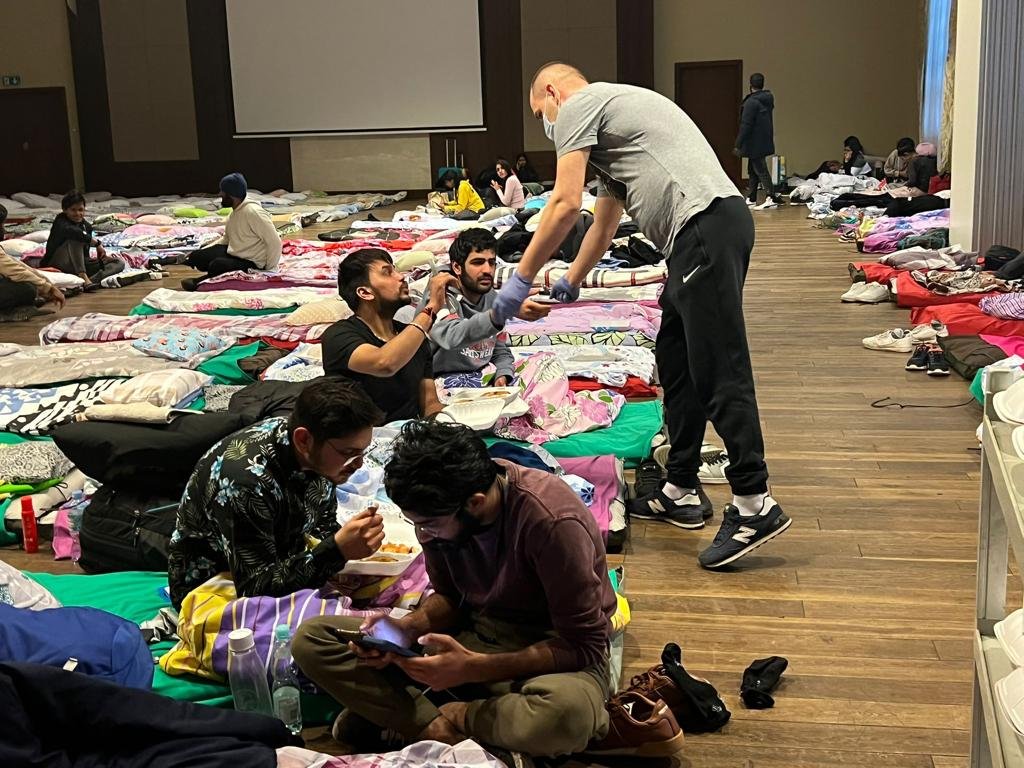
Indian students who crossed over from Ukraine are being accomodated at a shelter in Poland until they get flights back to India. (Photo tweeted by Indian journalist Sidhant Sibal)
There were reports of Indian students, perhaps not Tamils, being manhandled at the Ukraine border with Poland. While these were attributed to India’s pro-Russian stance at the UN, it seems language problem and lack of visas were more to blame. Countries have been letting in Ukrainians as refugees and Indian passports are not good enough without visas. Neighbouring nations have to take policy decisions regarding Indian passports. This will have to be arranged by our team.
India has a relationship with France that borders on the strategic. Their military cargo planes can be kept ready which can ferry thousands of people back home. Air India, as part of the Star Alliance, can mobilize passenger planes in neighbouring countries.
Abroad, India meant food, culture, music and arts. These are great for networking and establishing contacts and promoting goodwill.
The Modi administration prides itself on overturning the governance culture. It lays a premium on efficiency and strictness. The earlier laxity, profligacy and “chalta hai” attitude are not encouraged now especially in foreign services. Professionalism and task-orientation are the catchwords. DAs in the past had little oversight but not anymore.
But that same strictness and business-like attitude has had a negative fallout. India did not have much economic leverage or hard military power to influence the world in the past. But it used to project much soft power and that created goodwill and networks.
Abroad, India meant food, culture, music and arts. These are great for networking and establishing contacts and promoting goodwill. The Modi administration has an austere view of things and has cut back on such activities. India’s economic and military muscle and networks have grown but its soft power has declined.
In the case of humanitarian missions, Awara Hoon in the lips of Russian soldiers may have as much weightage as the missiles and tanks we ordered from their military.
(Dr J Jeganaathan, is Sr. Assistant Professor of National Security Studies in the School of National Security Studies, Central University of Jammu, J&K-UT. The views expressed here are his personal)
Read in : தமிழ்
